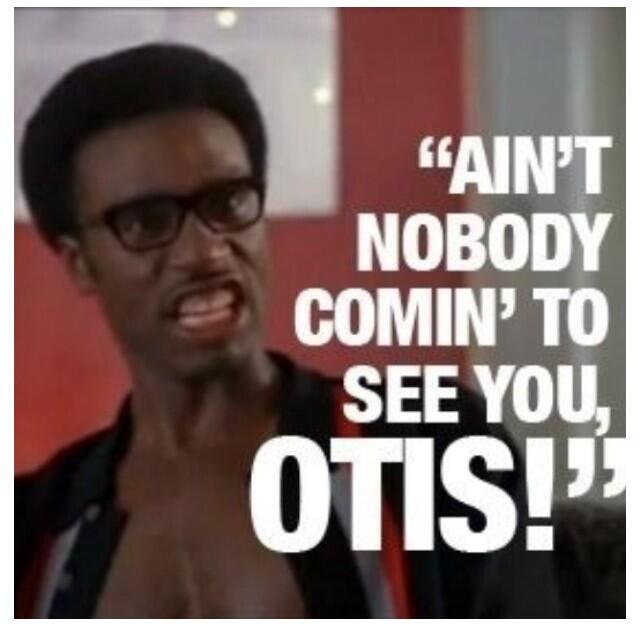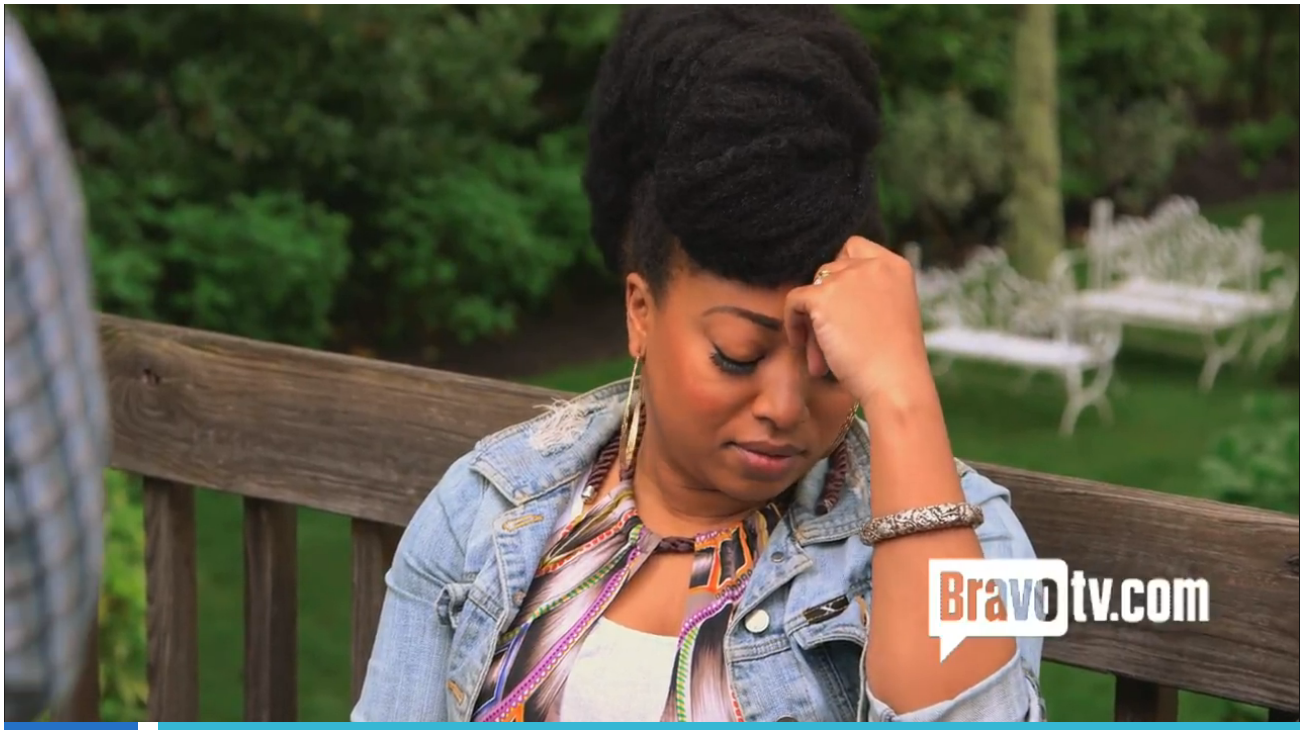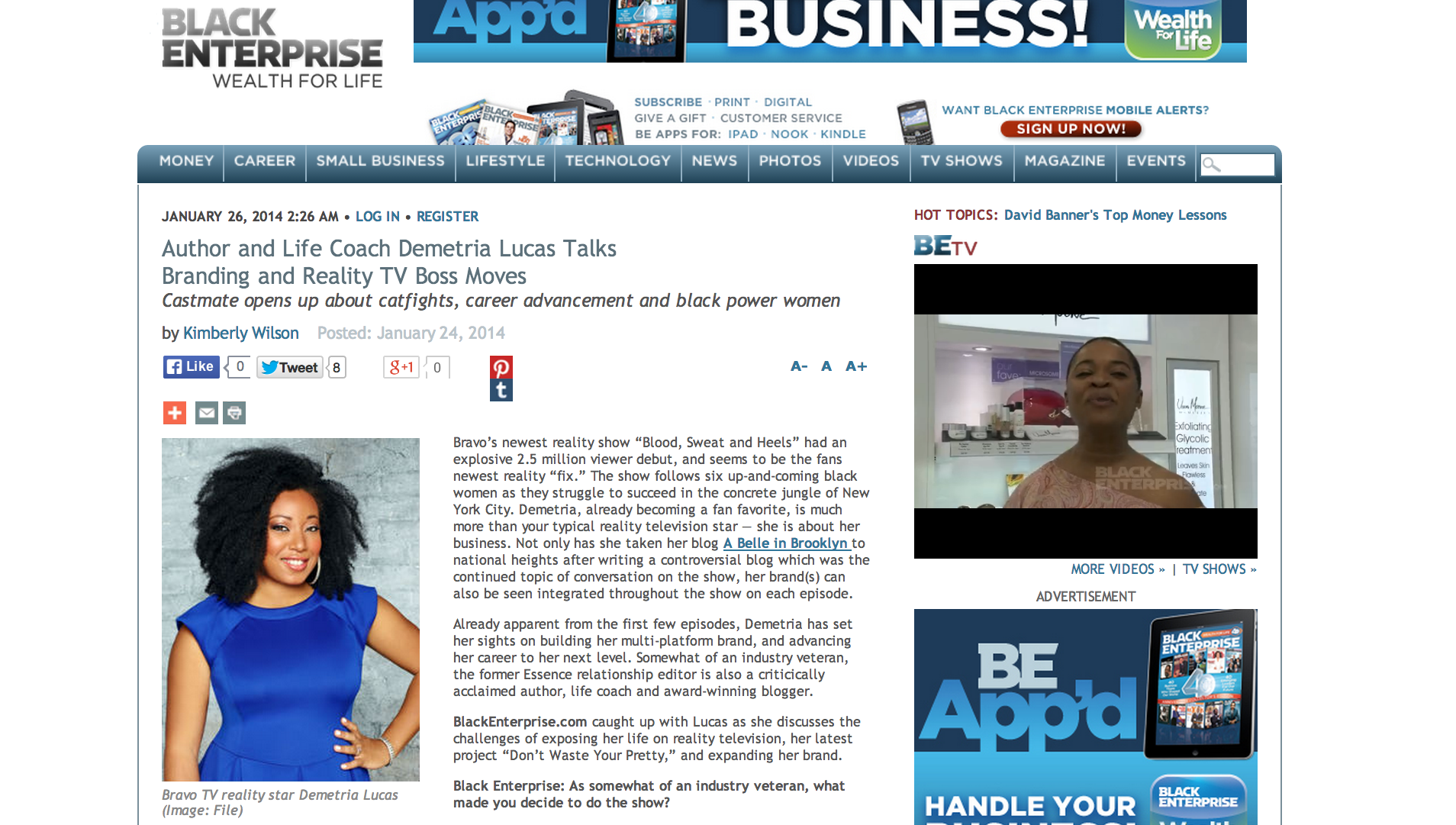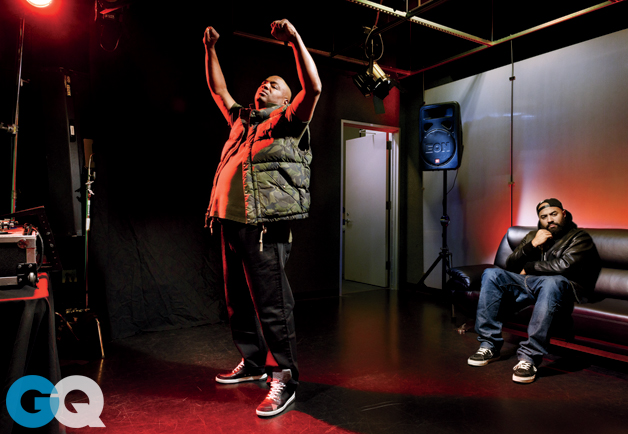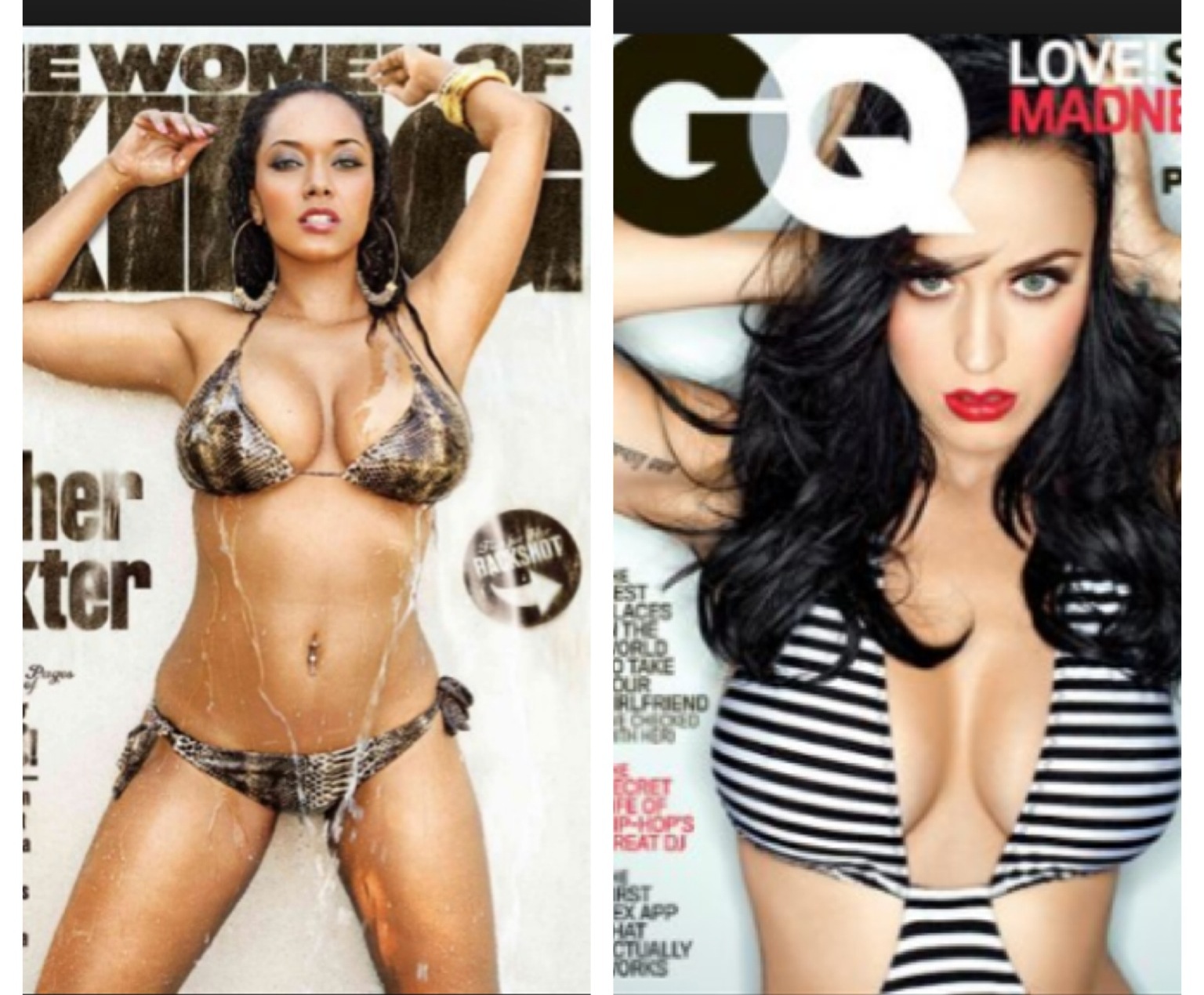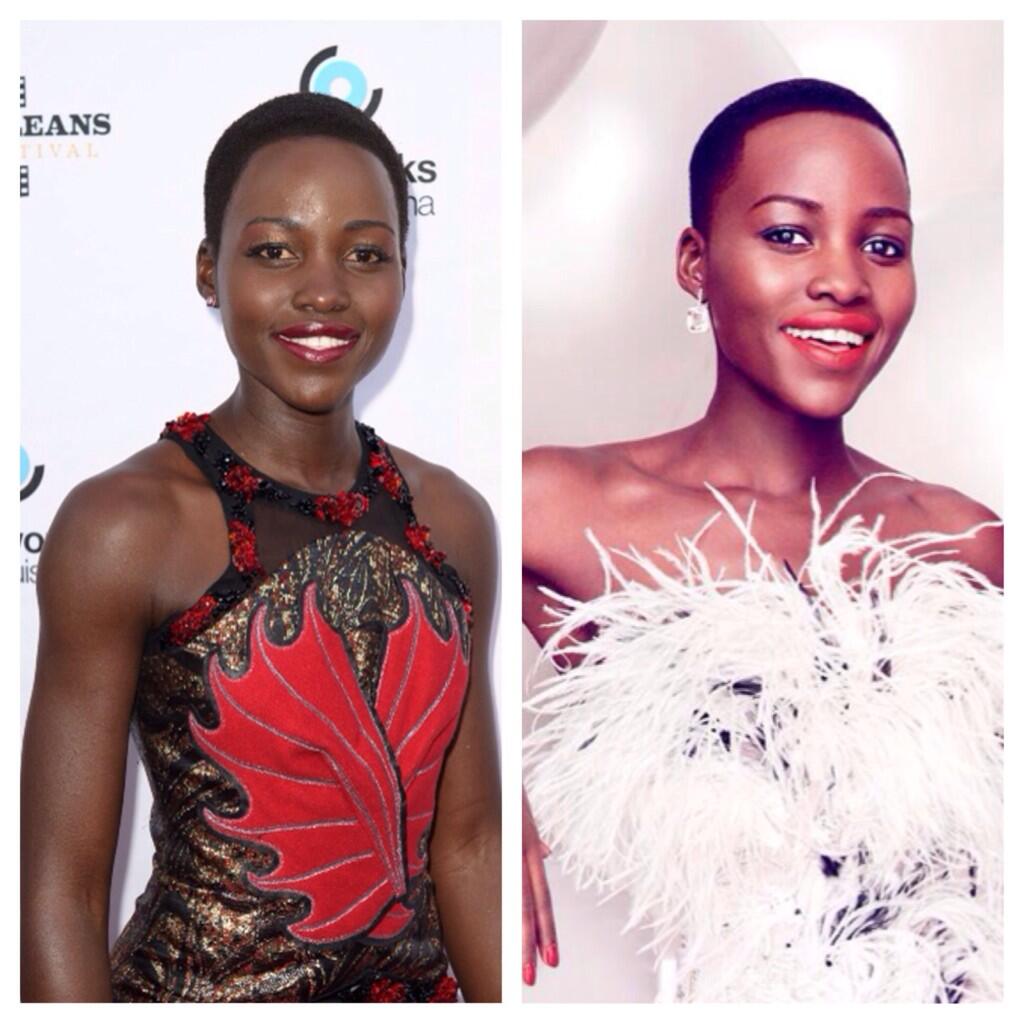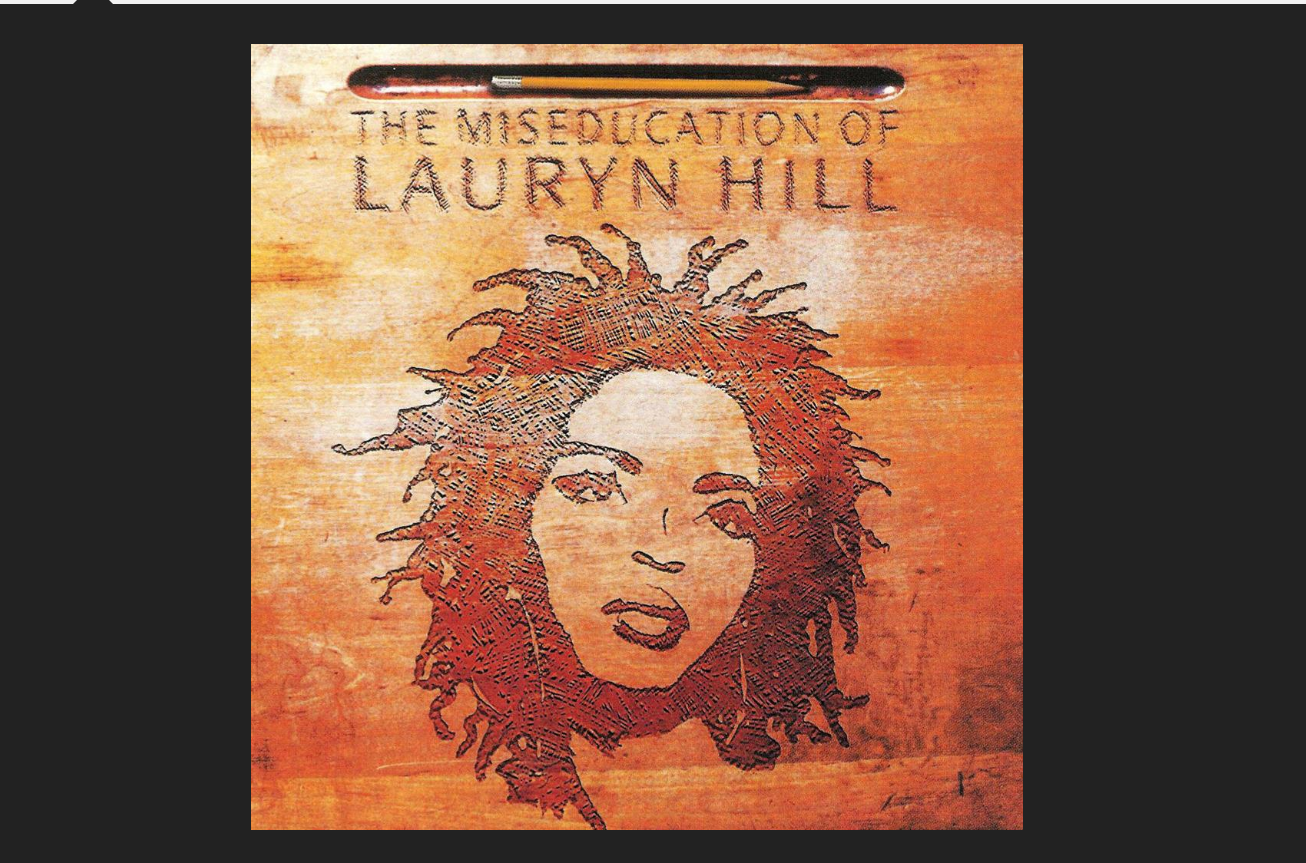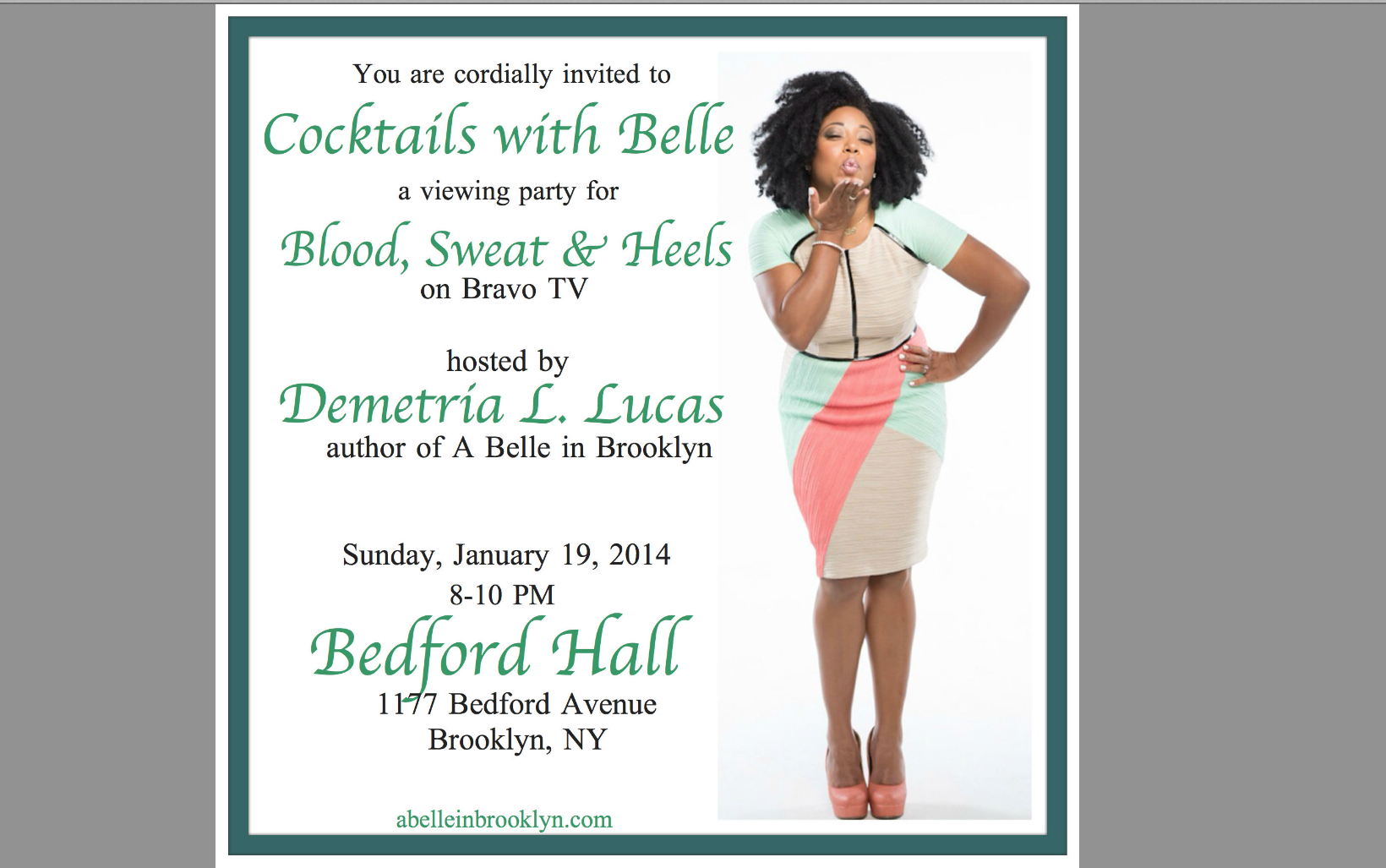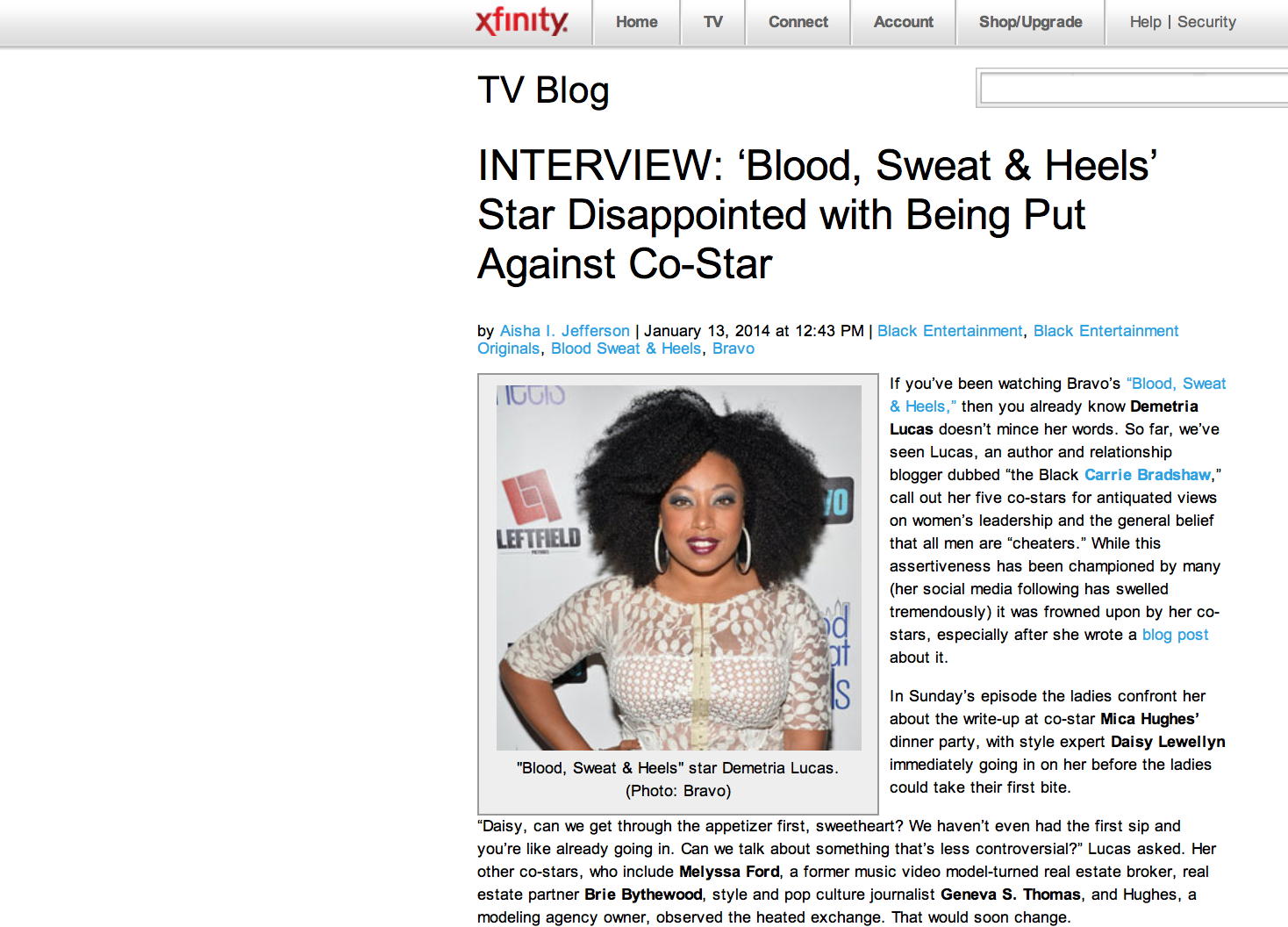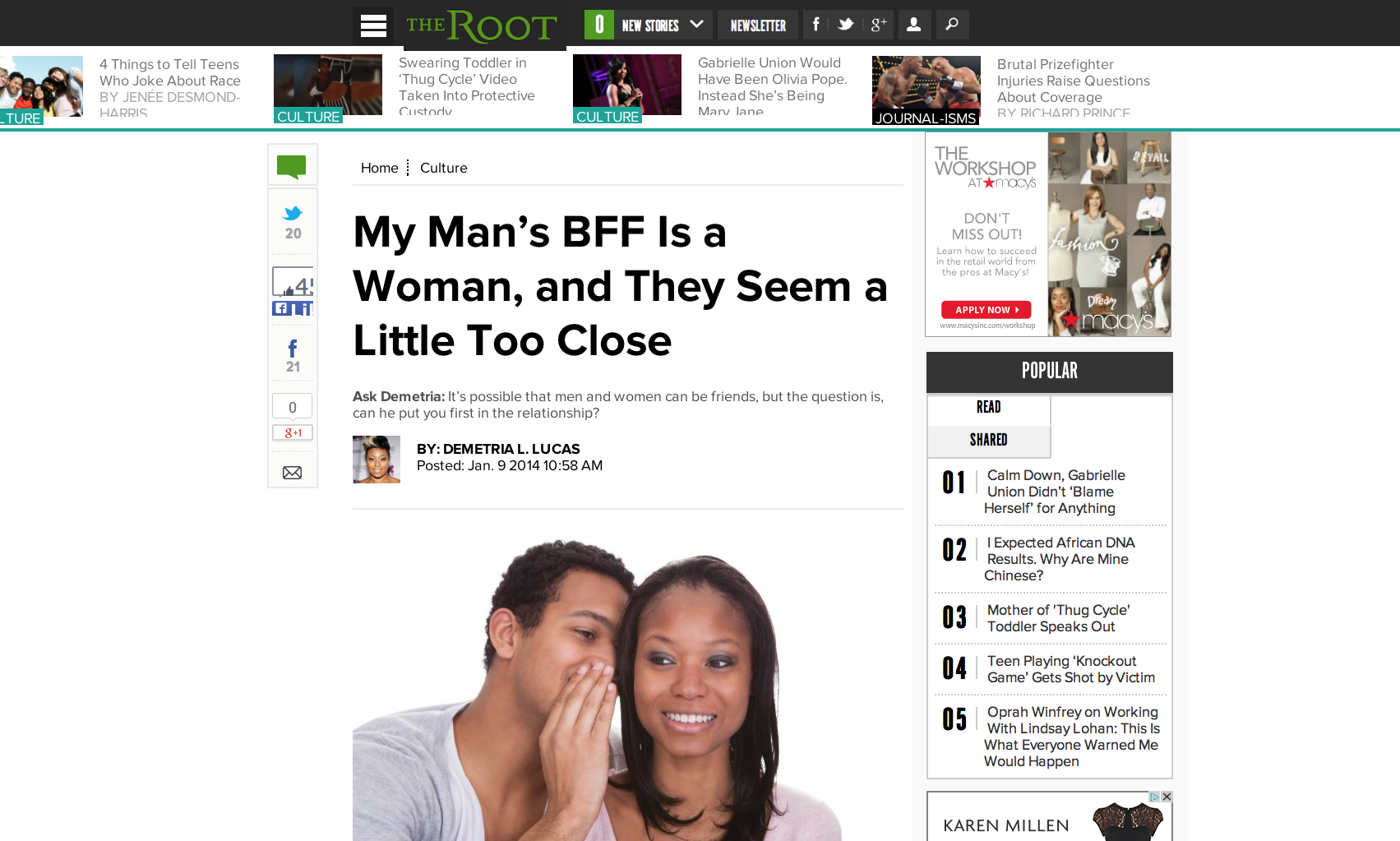I debated whether to weigh in on this XO Jane story , "It Happened to Me: There Are No Black People in My Yoga Classes and I'm Suddenly Feeling Uncomfortable With It."
In case you missed the hoopla, a self-described "skinny"white girl went to a yoga class in NYC, saw a Black girl in her class and wrote the most narcissistic, projecting essay I've read in a really long time. The only thing I can think of that tops it is that infamous (and fake? And equally delusional) essay from a white woman explaining why Black men prefer white women. #womp
Here's a selection from Yoga girl's essay. Try not to laugh:
"A few weeks ago, as I settled into an exceptionally crowded midday class, a young, fairly heavy black woman put her mat down directly behind mine. It appeared she had never set foot in a yoga studio...
"Because I was directly in front of her, I had no choice but to look straight at her every time my head was upside down (roughly once a minute)... At that moment, though, I found it impossible to stop thinking about this woman. Even when I wasn’t positioned to stare directly at her, I knew she was still staring directly at me.
"Over the course of the next hour, I watched as her despair turned into resentment and then contempt. I felt it all directed toward me and my body. I was completely unable to focus on my practice, instead feeling hyper-aware of my high-waisted bike shorts, my tastefully tacky sports bra, my well-versedness in these poses that I have been in hundreds of times. My skinny white girl body. Surely this woman was noticing all of these things and judging me for them, stereotyping me, resenting me—or so I imagined."
Are you laughing yet? It gets worse:
"I thought about how that must feel: to be a heavyset black woman entering for the first time a system that by all accounts seems unable to accommodate her body. What could I do to help her? If I were her, I thought, I would want as little attention to be drawn to my despair as possible—I would not want anyone to look at me or notice me. And so I tried to very deliberately avoid looking in her direction each time I was in downward dog, but I could feel her hostility just the same."
Really, lady?
Lawd, how I wish someone could track down the Black girl in the yoga class for the ultimate response piece. I really want to know what she was thinking. It was probably, "Can I live?"
White Yoga Girl is currently being dragged for entire life across the Internet. There are many great retorts, but the best response came from KazzleDazz.com where writer Kadia B. substituted yoga for twerking and read Yoga Girl from the complete Encyclopedia Britannica:
"A few weeks ago, as I settled into my crowded evening class, a young, fairly thin white woman took her position right behind me. She appeared to have never set foot in a twerk-out studio before..
"Because I was directly in front of her, I had no choice but to twerk in her face. I found it impossible to not think about this poor woman behind me. Even though I wasn’t positioned to stare directly at her, I knew she was still staring directly at my ass. Over the course of the next hour, I felt her despair turn into resentment and then contempt. I just knew for sure, it was directed toward me and my booty.
"By the time Juvenile’s “Back That Ass Up” came on, I was completely unable to focus on my twerking. Instead, I was feeling hyper-aware of my spandex booty shorts, my sexy tight tank top, my well-versedness in dropping it like it’s hot. My heavy-set black woman body. Surely this skinny white girl was noticing all of these things and judging me for them, stereotyping me, resenting me – or so I assumed. However, I’m pretty sure I was right. How could I be wrong?"
Like I said, there have been so many great satirical and intelligent responses (honorable mention), I feel like I would be re-inventing the wheel to do add one of my own.
There is, however, one point that I have not seen in the many great responses, a nuance that NEEDS addressing:
*ahem*
SOME white ladies need to know that really, it's only thicker American Black girls who were raised in or only operate in white environments who have any envy for the "ideal" skinny white girl shape. Skinny Black girls have the same shape, usually with some ass, and they're not trying to exchange it for long back or noassitall.
In general, Black girls don't get the size 0/ size 2 with absolutely no curves thing that SOME white women cottage cheese, lettuce and yoga their way through life for. We flip through "mainstream" magazines and look at the clothes on the skinny models that reflect the white ideal and think, "that might look like something if she had some shape, but her shoes are cute though."
Think I'm playing? Look on Twitter at the reaction to the size 2 Beyonce' that showed up at the Grammys Sunday night.
This may cause some alarm for white folk who think they are the center of the universe, but those particular white folk do need to know that Black folk have their own standard of "ideal" beauty. It involves curves in the "right" places-- kinda like what Bey had pre-Blue or like the woman in the picture at the top of this page. And there are black girls aplenty trying to get that shape, narrow waist, wide hips, thick thighs and plump ass mandatory. When most Black women exercise, we're mostly trying to cardio off mid-sections and keep everything else curvaceous so we can "fill out" our clothes, ironically enough, just like Beyonce' sang about on "Jealous". Milkshakes bring boys, of all colors, to the yard.
Lastly, Black women really don't spend that much time thinking about white women. We go through life thinking about, you know, ish that matters-- when is Scandal coming back, how long it's going to take to pay back Sallie Mae loans, if the Rabbit has fresh batteries, etc. Random white women only pop on our radar when one of them does something wildly offensive or asinine... like write a masturbatory essay about how a Black woman minding her own damn business in a yoga studio must envy or hate her for being thin and white.
And then? Well then, you get dragged.

